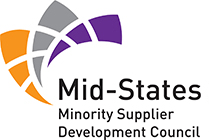Once upon a time, improving your prospects for promotion by increasing your skill set was relatively simple. You could take an accounting class…learn to use a desktop publishing program…or study up on new sales techniques. There was always a course you could take, or a workshop, or a how-to book.
But in today’s fast-changing workplace, it can sometimes feel like getting ahead requires all-new skills and completely unfamiliar ways of operating. Worse, these skills seem to come more easily to millennials, who were born into their knowledge of the digital world, than to those of us who have been in the workplace a while.
Welcome to the 21st century.
The good news is this: staying relevant and increasing your chances for promotion doesn’t necessarily mean you must tweet your every move or post all your photos to Instagram. But it does mean you need to identify and develop a range of “soft” skills that are emerging as the most-sought-after abilities for employees in 2020 and beyond.
The Institute for the Future aggregated data from a wide range of fields, to forecast job changes and predict the skills that will be valued by employers in 2020.
Factors Driving Skills Changes
The larger trends driving change, according to their report, include the rise of smart machines and, as a consequence, exponential growth in our ability to collect, aggregate and analyze data; changes in media and communications; radically increased global interconnection; and increased longevity.
Top Skills for 2020
The skills these disruptive changes require may not be the ones you’d expect. Here are some of the top skills employers will want in 2020, as forecast in IFTF’s report:
Sense making. Smart machines are doing more and more of the work traditionally done by humans, but they still have limitations. When ambiguity exists, human discernment becomes even more valuable. Machines perceive data; humans perceive meaning.
Social intelligence. By the same token, humans understand emotions in a way machines cannot. Social intelligence will be a huge asset in the workplace of the near future.
Cross-cultural competency. The rise in global commerce requires companies to embrace diversity. In this context, cross-cultural competency isn’t the ability to speak foreign languages (although that helps); it’s the ability to find points of connection across cultural boundaries.
Other skills gaining momentum
As our access to information grows in leaps and bounds, two abilities are gaining in importance: computational thinking, the ability to translate data into ideas — and what IFTF calls “cognitive load management”; the ability to zero-in on what’s important when confronted with a sea of information.
Other attractive skills for the coming decade include “novel and adaptive thinking” (what might have been called “creativity”), a facility with new media, ability to think across disciplines and ability to collaborate virtually.
Sound like a tall order?
While these skill sets are driven by technology and the new global, digital economy, they are essentially human or “soft” skills, according to career expert Laurence Shatkin. These are skills we all can develop. And sometimes, they put those of us with more experience at an advantage.
Shatkin studied correlations between skills and income to ascertain which job skills were the most lucrative. His research tracked which skills, when increased, were most likely to lead to an increase in income. What he found was a high value on intellectual skills that are not technology-based but that provide a foundation for using technology well. The most lucrative skill, he found, was judgment and decision-making abilities. Next came complex problem-solving, active learning, reading comprehension and critical thinking.
Wait, you may say: how do I increase my problem-solving skills?
First, recognize that these are skills that you already have. They may not, however, be top of your resume or the first thing you mention in a job interview or annual evaluation. Take another look at that. Think about what you do or have done that required complex problem-solving, and figure out how to tell that story.
Second, use these skills as criteria for making choices in the future. Ask yourself, “Will this new project or job allow me to refine my cross-cultural competence? Will it give me opportunities to increase my judgment and decision-making skills?” Track your progress, and make sure you document your accomplishments.
Now you’re building a skill set that will help you rise to the top of the heap in the coming decade. You don’t need to be a computer whiz to stay relevant; you need to sharpen and promote the very human skills that will allow you to harness technology. That’s what keeps companies competitive — and it can do the same for you.





